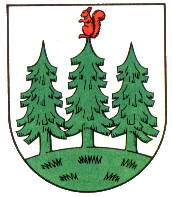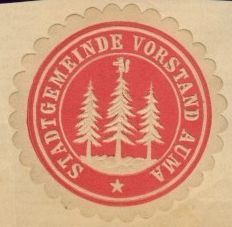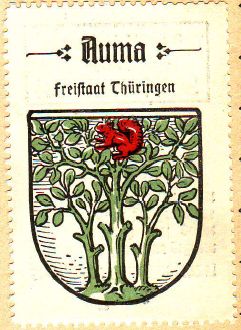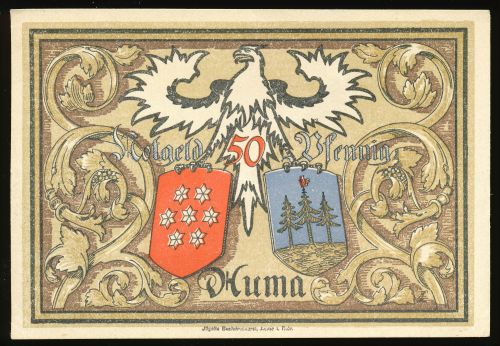Auma: Difference between revisions
Jump to navigation
Jump to search
Knorrepoes (talk | contribs) (Created page with '{|width="100%" style="color:black; background-color:#ffffcc;" |width="15%"|50 px|left |width="70%" align="center" |'''Heraldry of the World<br/>Civic heraldr…') |
Knorrepoes (talk | contribs) No edit summary |
||
| Line 10: | Line 10: | ||
State : [[Thüringen]]<br/> | State : [[Thüringen]]<br/> | ||
District (Kreis) : [[Greiz (kreis)|Greiz]] (until 1994 Zeulenroda)<br/> | District (Kreis) : [[Greiz (kreis)|Greiz]] (until 1994 Zeulenroda)<br/> | ||
Additions : 1994 Krölpa, Muntscha, Wenigenauma, Zickra | Additions : 1994 Krölpa, Muntscha, Wenigenauma, Zickra<br> | ||
Verwaltungsgemeinschaft: Auma-Weidatal | |||
[[File:auma.jpg|center]] | [[File:auma.jpg|center]] | ||
Revision as of 15:34, 16 January 2011
| Heraldry of the World Civic heraldry of Germany - Deutsche Wappen (Gemeindewappen/Kreiswappen) |
AUMA
State : Thüringen
District (Kreis) : Greiz (until 1994 Zeulenroda)
Additions : 1994 Krölpa, Muntscha, Wenigenauma, Zickra
Verwaltungsgemeinschaft: Auma-Weidatal
Origin/meaning :
The arms are known since the first half of the 15th century. Originally the pine trees were beeches. In the 17th century the number of trees was often reduced to a single tree with a squirrel in the top. The actual meaning of the arms is not known. The present colours are derived from the money issued in Auma in 1921, as no historical colours were known. Those showed a blue filed, which was not heraldically correct (see below), the field was therefore changed to silver.
| Seal from around 1900 |
The arms in the Kaffee Hag albums +/- 1925 |
| Local emergency money from 1921 |
Literature : Hupp, O: Kaffee Hag albums, 1920s; Benzing et al, 1984




